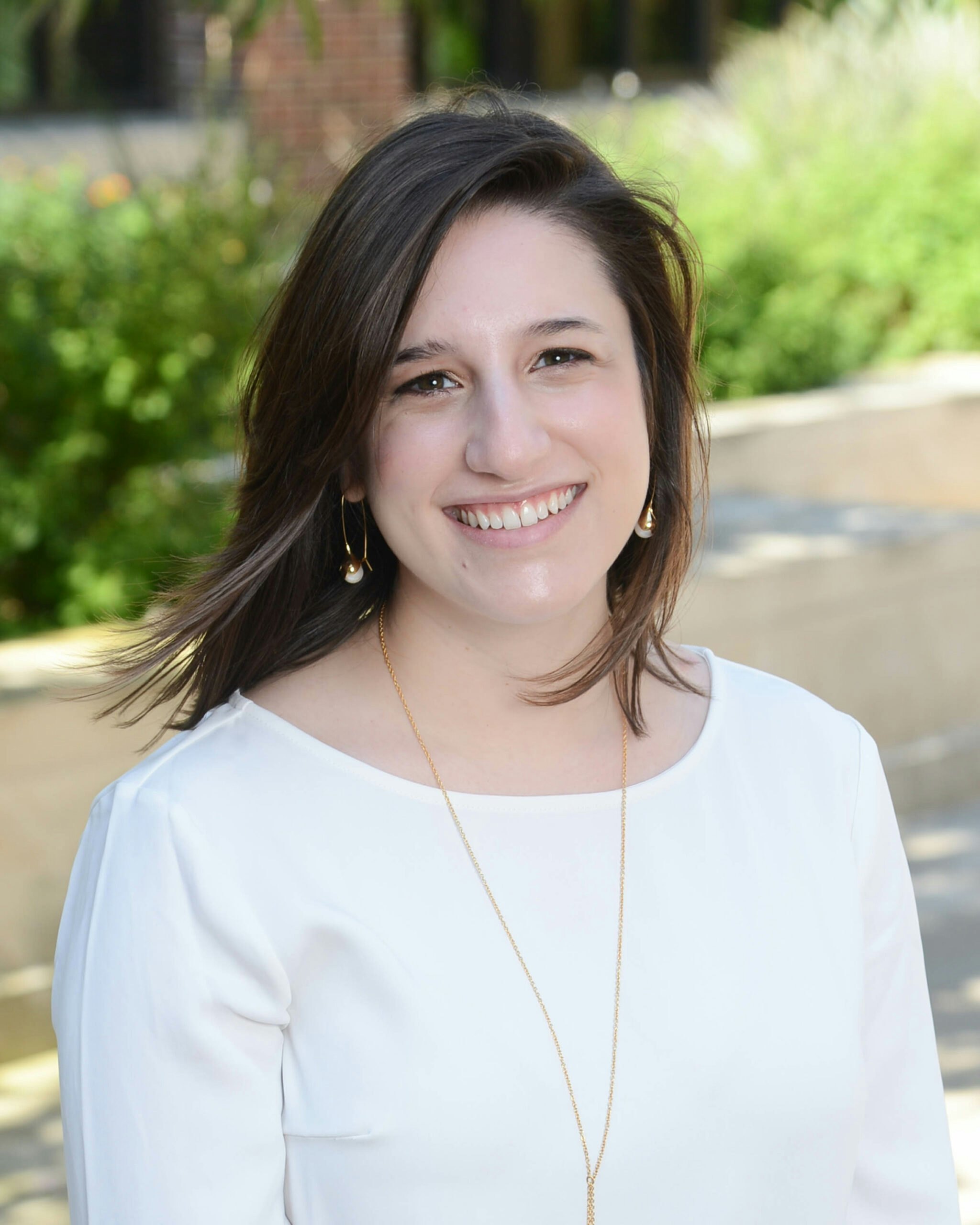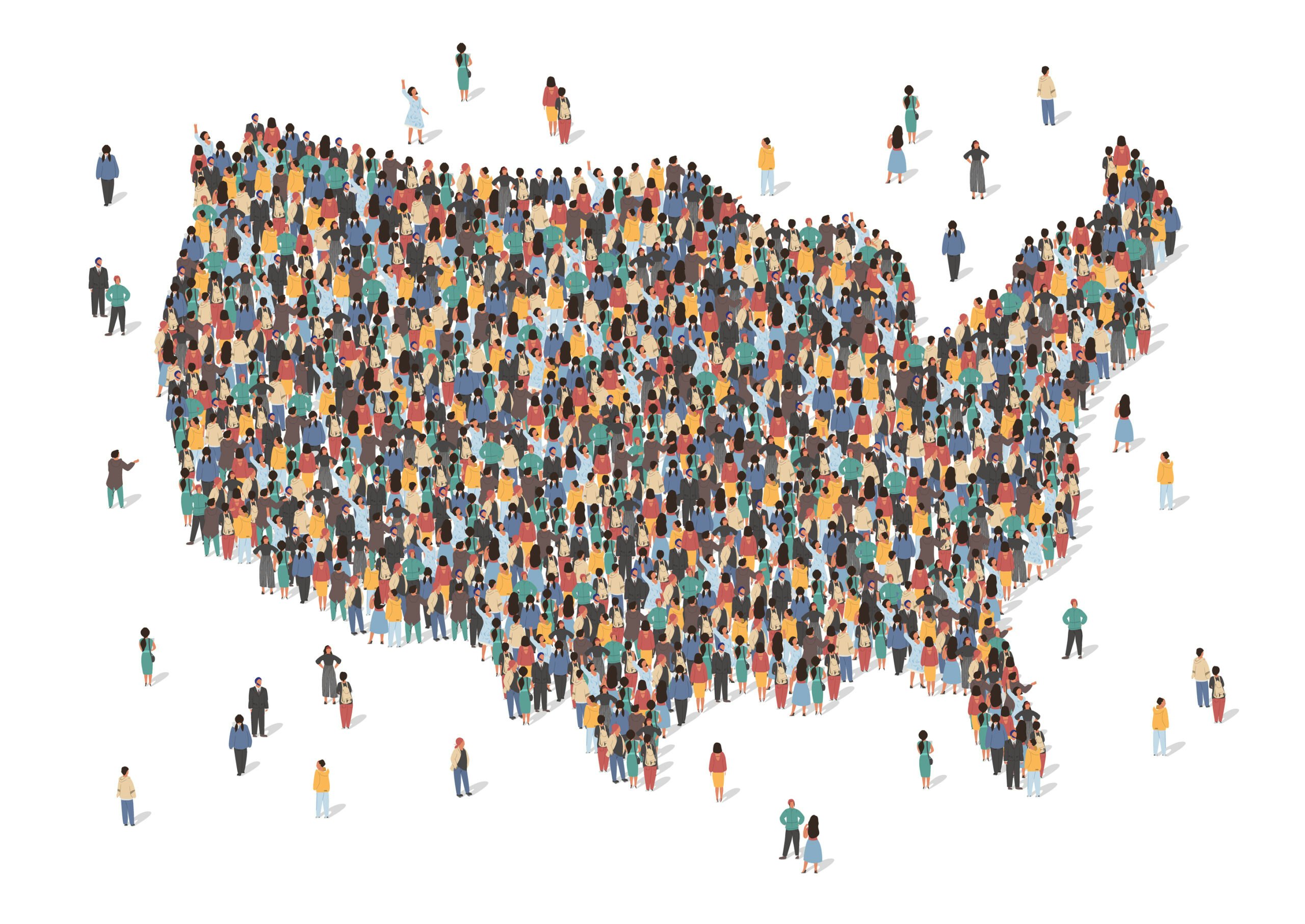We chatted with Congressman Will Hurd about immigration, the CIA, and why he decided to Facebook Live a 36 hour road trip with Democrat Beto O’Rourke.
We chatted with Congressman Will Hurd about immigration, the CIA, and why he decided to Facebook Live a 36 hour road trip with Democrat Beto O’Rourke.
-
- Learn how smart, skills-based immigration reform accelerates economic growth
-
- Read stories from immigrants and debunk common immigration myths at A Nation of Immigrants
-
- Read the Bush Institute’s 2019 policy recommendations to modernize immigration for today ‘s realities
Read the episode transcript
Transcript
00:00 Andrew Kaufman: Here’s a unique career path. From computer science in college to CIA agent collecting intel in some of the most dangerous places on earth, to Republican Congressman representing the 23rd District of Texas. We chatted with Congressman Will Hurd, whose district includes much of the Texas and Mexico border, about what immigration reform should look like. We also talk about the skills he learned in the CIA and how they’re helpful in Washington DC. And we, of course, cover how he ended up on a 36-hour road trip with Democratic Congressman Beto O’Rourke.
00:31 Will Hurd: Here’s what was crazy. During that whole experience, we had 26 million people watch. We were on every news program, which tells me that people actually want us to get along and solve big problems, that the American people want that.
00:49 AK: Congressman Hurd also takes us into his world, giving us behind the scenes details about life as a law maker in the United States. I’m Andrew Kaufman, and this is the Strategerist, presented by the George W Bush Institute.
[music]
01:05 AK: What happens when you cross the 43rd President, late night sketch comedy, and compelling conversation? The Strategerist, a podcast born from the word strategery, which was coined by SNL and embraced by the George W Bush administration. We highlight the American spirit of leadership and compassion through thought-provoking conversations. And we’re reminded that the most effective leaders are the ones who laugh.
[music]
01:33 AK: We’re here today with Will Hurd, Congressman from the 23rd District of Texas, Republican. Will, thank you so much for joining us this morning.
01:40 WH: It’s awesome to be with you all today.
01:42 AK: We’re also with Matt Rooney, our co-host today who is managing director of the Bush Institute SMU Economic Growth Initiative. Matt, thanks for joining us as always.
01:50 Matt Rooney: It’s always a pleasure to be here, thanks.
01:52 WH: Say that title three times fast. Yeah.
[laughter]
01:54 AK: That’s why we made it [01:54]. Congressman, you’re a legislator and you’re making the laws of the land. At this interesting point in history, what’s your approach right now?
02:03 WH: Well, my approach now is the same way it’s always been. Agree with people when I agree with them, disagree when I disagree. The only way you get big things done is if you do it together. And so I’ve gotten 14 pieces of legislation signed into law, that’s under a Democratic President and a Republican President. I’m a Republican legislator, and the only way I’ve gotten that many piece of legislation signed into law is by working together. And I actually believe we… Way more unites us than divides us, and so that’s the strategy I’ve had since I’ve been in Congress, now for four-and-a-half years, and that’s the strategy I’m gonna continue.
02:43 MR: Congressman, if you don’t mind my asking, I think it’s safe to say that Texas A&M to the intelligence community to Congress is a unique career path.
[laughter]
02:56 MR: What sent you down that path?
03:00 WH: Well, I thought I was gonna be a programmer at IBM. And I grew up in San Antonio, and I had an internship at Southwest Research Institute, and I was working for a female engineer who was a leader in robotics and loved it, and decided to pursue computer science in high school. And I went to A&M. I was supposed to go to Stanford, but I decided to go to A&M after being on campus. I fell in love with it, and I had never been outside of Texas. And I’m walking across the campus for one afternoon, and I see a sign that says “Take two journalism classes in Mexico City for $425,” and I had 450 bucks in my bank account…
[laughter]
03:46 WH: So I go to Mexico.
03:47 AK: It was a sign.
03:48 WH: It was a sign. I fell in love being in another culture. I fell in love seeing things I’d only read about in books, and I added International Studies as a minor. And in my first class, I had a guest lecturer who was this former CIA tough guy, and he told the most amazing stories, and I did something the next day after hearing him that I hadn’t done at that point in my college career. I went to a professor’s office and knocked on the door, and that began a friendship, and that began my interest in the CIA, and so I went in right after… Right after I graduated, and so I was the dude in the back alleys at 4 o’clock in the morning collecting intelligence on threats to the homeland. It was being in dangerous places, trying to stop bad guys from doing bad things on our homeland. And in addition to collecting intelligence I had to brief members of Congress. And to be frank, I was pretty shocked by the caliber of our elected officials, and I thought I could help the intelligence community in a different way, and I had some friends that ran races and put the idea of the 23rd District in my head, which is basically where I grew up, and I decided to run for Congress. I left a job I loved. I did two years in training at what I used to call the super secret CIA training facility called The Farm. Now it’s on Google Maps.
[laughter]
05:09 WH: I always wish that was a joke, right? It truly is.
[laughter]
05:13 WH: And then two years in India, two years Pakistan, two years New York City doing inter-agency work. A year and a half in Afghanistan, and so I left Afghanistan, moved back to my home town, ran for office, and lost an election by 700 votes. But I don’t tell that story anymore, but it gave me an opportunity to go into the private sector, and then I ran again and was successful.
05:34 MR: So if I could ask you a follow-up, at least in the popular imagination, the CIA is the opposite of bureaucratic. It’s the opposite of process. It’s cut to the chase, it’s take, not even take the hill. It’s steal the stuff. Congress is the epitome of process. So how did the one prepare you for the other? What do you bring from the former experience to the latter?
05:56 WH: You are 100% accurate in your understanding of the agency, and the reason…
06:03 MR: I don’t knew if you know this, but I used… I worked for the Department of State [06:05] ____.
06:05 WH: Absolutely, absolutely. And as you know, the reason that the CIA is able to be nimble, is because everybody’s geared towards the mission. The clandestine service which I was in are the collectors of last resort. If you can’t get a piece of information any other way, that’s when you got to the national clandestine service. So it’s the hardest, it’s the most expensive, it’s the most dangerous way of getting information. And so everybody in the organization is geared towards that, and the frustrating thing about Congress, it was actually designed not to be efficient. The reason you have checks and balances is so that somebody, one individual can’t come in and change things on a whim. So that’s actually a good thing, it’s frustrating, but for me, I always remember my time in the agency. I remember my time in the private sector, and try to bring the things I learned there into the legislative process. So the thing that prepared me for the job is I work on issues that I have an experience in. There’s not too many people that have my national security background experience.
07:26 WH: When we talk about border security, I’ve been in some pretty nasty borders. I’ve chased bad people all around the world, and so I have that experience. And so when it comes to Congress having more of a role in national security and foreign policy, and we’re able to where… I have a role there.
07:47 WH: I also, the training as a professional intelligence officer, and I would also say our diplomatic corps, what we learn is how to ask really good questions. What we learn is how to get the right information from the right people to inform a particular decision. And that’s the role of an individual member of Congress. There are so many issues that you have to deal with in the course of a day, course of a week, and knowing how to gather that information, talk to the right stakeholders in order to formulate some kind of final position. And that’s another thing that I’ve tried to do, and that’s something that I’ve had my team work on, and that’s why I think we’ve been able to be successful in so many areas is ’cause seek to understand before being understood, and that’s one of the reasons why all the issues that impact my district, I take that approach.
08:42 AK: Well, and one of the big issues that’s impacting your district is, of course, the immigration issue, which is what we’re here this morning to talk about. You’re here for our naturalization ceremony that’s being hosted by the Bush Institute. If you were in a vacuum, and you could just write an immigration bill with your pen this morning, what would that bill look like?
09:01 WH: It would be a market-based system that was based on need, and you were, it was so streamlined that it didn’t take nine months to process a visa, right? It’s that simple. The United States has benefited from the brain drain of every other country for the last couple of decades, I wanna see that continue, and I wanna benefit from the hard-working drain as well. In my district… Unemployment across the country is 3.94%. What does that mean? No matter what industry, agriculture or artificial intelligence, you need people. The thing that will stall our economy is the lack of a workforce to take advantage of opportunities. That’s why we should be able to streamline our immigration. And when I say streamline, it starts with DACA. These are 1.2 million kids. I shouldn’t say kids, young men and women that have only known the United States of America as their home. They were brought here through no fault of their own. They were brought here by their parents. They all have… If someone is a potential DACA recipient, it means they have a clean record. It means they’ve gone through high school. It means they’re either pursuing college or have been working for 80% of the time that they’ve been out of school or they wanna go in the military. These kids have already contributing to our culture, our economy, our society. They are Americans. We should make it permanent. We should have a proper legislative fix. So that’s DACA.
10:45 WH: You can also add TPS into this. TPS is Temporary Protected Status. These are people where there was a natural disaster in a country, and they got a legal visa to come to the United States. Now, the first letter in this visa category is Temporary. It was only supposed to be temporary. Many people have been here for a couple of decades. But they’ve been paying taxes, they’ve been paying into Social Security. If you look at… I think Texas has about 50,000 TPS. Many of them are in Houston and many of those folks are in construction. So they’re rebuilding Houston still from Hurricane Harvey, and we’re talking about kicking them out of the country. That makes no sense, and so, oh, and by the way, there’s not thousands of people that are waiting to get construction jobs that can be tapped in to come in and work. So those are the two areas that we should be able to sort out quickly.
11:49 WH: If you also streamline immigration so that people that need workers can get them, you relieve the pressure on the border for our men and women in border patrol to actually go after the stuff that’s happening illegally, alright? 67 billion dollars worth of illegal drugs coming into our country. You do have king pin human smugglers who are trying to bring bad people into our country. So when you take away or when you make it easier for border patrol to focus on the bad apples, this could improve security of our country. So and I can get into every little detail.
12:28 WH: Another thing that’s happening. It’s something, the number is like 75% of kids that are in graduate programs at American universities in STEM, Science, Technology, Engineering and Math, are foreign-born. So, one, we need to make sure more kids that grow up the United States are going to STEM careers, that’s number one. But number two, a lot of those people that we are educating here in the United States of America would love to stay in the United States of America, start businesses in the United States of America, contribute to great businesses that are already here, yet a lot of them can’t stay here. That’s crazy. And so being able to streamline that process would be a hallmark of our plan.
13:24 MR: So why is it so hard? ‘Cause everything you just said makes total sense. I’ve said many of those things, not as eloquently, of course, myself, I’ve heard them said. President Bush had been committed to that proposition for 15 years, 20 years. Why is it so hard?
13:41 WH: It’s hard because it’s political. The thing I’ve learned, most of the technical fixes to the problems we deal with are quite easy. However, what I just explained can’t fit in 280 characters in a tweet. It takes time to explain it, it takes time to set up the problem, it takes time to explain the second and third order effects of certain decisions. And politicians don’t have time to do that with their electorate. So that’s part of it. There is one part that’s of folks, and that’s on my side of the aisle, that wanna see a decrease, a net decrease in immigration coming into our country. And then on the other side, there are people that, no matter what, do not wanna give a legislative victory to Republicans. So you have to deal with those perspectives in this fight as well. It’s frustrating, especially frustrating, ’cause the last Congress, the 115th Congress, we came two signatures away from getting a DACA fix. We had already whipped this bill, it was called the USA Act, it’s the only bipartisan, border security, immigration bill in Congress. It was drafted by a tall, dark, and handsome Texas legislator.
15:23 AK: What district is he from?
[laughter]
15:26 WH: It was me and my buddy, Pete Aguilar. Pete Aguilar is a Democrat from California. I always feel like that’s a set up of a joke. A Republican from Texas and a Democrat from California walk into a bar.
[laughter]
15:40 MR: And if we meet, we go to different sides of the room.
15:44 WH: Exactly.
[chuckle]
15:45 WH: So we had whipped this bill, whipping means you actually talk to individual legislators and say, “Are you a yes or are you a no?” And if they say, “Maybe,” “What do you need in order to get there?” So it’s the process of garnering the votes for a piece of legislation. It would have passed. If we would’ve gotten this bill to the floor, it would’ve passed. Now, what was preventing us from getting it on the floor was the Speaker of the House of Representatives at the time. And we knew all the different elements that would bring people to this, and we came two signatures away from a what was called a discharge petition. This is a parliamentary tool to force a vote on the floor. And the reason we were two shy from that was because the Republican leadership prevented this from happening.
16:40 WH: Now, in the 116th Congress, the current congress that we’re in, and I’m not trying to be political here, I’m just trying to state facts. It’s the current Democratic leadership of the House that is preventing a bipartisan tool from going forward. And on the funding bill that passed three weeks ago, four weeks ago now, maybe five weeks, it was Democratic leadership that kept DACA and TPS off of that discussion. And honestly, the President had already intimated that he was willing to play ball on that particular topic. So again, it gets back to people trying to deny other side a political victory. And the people that get hurt, in this case specifically, are the DACA kids who still are living under that uncertainty.
17:34 AK: Well, that brings us to one of your more newsworthy moments, again, not newsworthy, but see the most attention in the news was your road trip with Beto O’Rourke during the snowstorm. How do moves like that you think help with the legislative process?
17:54 WH: Well, here is what was crazy, during that whole experience, we had like 26 million people watch. We were on every news program, which tells me that people actually want us to get along and solve big problems, that the American people want that. However, when we consume our news, we are making it, we’re the ones clicking on stuff that reinforces our own thoughts, biases, things like that. But I think in most people’s hearts, they really want folks to be able to get along. I’ve been in Congress for four-and-a-half years now. What is strange is and what most people would find, would think is odd, the individual relations between members is actually quite warm. When the lights aren’t on, when the cameras aren’t on, everybody’s incredibly cordial. I had an experience where, it was my first time going on a news program with a group, two Republicans, two Democrats. And in the green room, we were all talking about the things we were working on together. And when we went out to the cameras, it was like, “Holy mackerel!” It was like the WWE Royal Rumble. I just found it very, very odd. And then afterwards, we all were talking about the, “Hey, we’re gonna follow up on this. I’m gonna follow up on that.”
19:42 WH: Part of the reason we know each other, but we know each other superficially and when, and during the road trip what would happen is… So it was a 36-hour trip from San Antonio to Washington DC, 31 hours in the car, 29 hours live streamed. And we…
20:09 AK: What’s on those other two hours is the question. [chuckle]
20:11 WH: Right. Well, yeah, it was bad cell service. Actually, I was pretty shocked that only from San Antonio to Washington DC, there was only like two hours worth of road that we didn’t have good cell phone service, it was pretty amazing. In that, when we took, we tried to make it the longest rolling telephone town hall and we took questions the whole time. So we had like an eight-hour debate on healthcare. We talked about every single issue imaginable, and many of the topics we talked over and over again, because people would ask those questions. And you start learning, “Hey, both sides really actually cares about the community. They really wanna solve problems for people.” And you just may differ on the tactic but I think when you have more of that kind of interaction, you don’t demonize the other side, right? You don’t have contempt for the other side. And that is the only way we’re gonna solve these problems is, as I said at the top of the show, is by working together.
21:26 AK: You can almost expect that you got a Republican and a Democrat in the car, they aren’t even gonna be able to agree on what to listen to, or what road to take. And it’s fisticuffs the whole way. Then you say, “No, this is… We all want the same destination. We just have a little bit different ideas of the best way to get there, but we can talk it down and figure it out,” and it’s a great symbolic gesture.
21:46 WH: One of the things I love, like my friend, Pete Aguilar in California, when it comes to immigration and border security, he’s so smart on the issues. And so the ability to have a technical conversation with someone who understands the ins and the outs of the topic, that’s how you get things done. And so having those substantive matter, subject matter experts on a particular topic and knowing who those folks are, is really valuable.
22:22 MR: So, that strikes me as what you just described, I understand and accept the idea that you guys, men and women on the hill are colleagues, you talk to each other, you have, you understand one another, in a certain sense, and yet when it comes to the public facing piece of it, you have to kind of play to your end to end corners, right? So how do we get out of that? ‘Cause that’s obviously harmful because ultimately that degrades your ability to be collegiate with those people when you indulge in those personal attacks in public.
22:55 WH: Well, I think part of it is the structure of our elections. I actually believe more districts should be like mine, where it’s truly 50-50. And so if your, the way you win an election, if you talk to the professional political class, the people that run races, pollsters, all that, they’re gonna say in the election, create contrast. So if you’re always… If your goal is to create contrast between you and your opponent, guess what you do all the time? Create contrast. And so, in a district like mine which is one of the only… It’s truly the only 50-50 in Texas, it’s only one of three districts that… So, that Hillary Clinton won in 2016 that is represented by a Republican. It’s the only district that Mitt Romney won, Hillary Clinton won and a Republican is representing it in Congress.
23:53 WH: I am rewarded for actually working across political lines. I’m rewarded for getting things done, right? And so that is, I think, ultimately, the way we change… You gotta change the kinds of people that go to Washington DC, but you also have to change the reward structure so that you get rewarded for actually working and solving problems rather than talking about the issue. Everybody just talks about messaging. Gotta message this issue, and I’m always like, “Hey, here’s a novel idea. How about you actually do something, and then go tell everybody what you did? That’s a little bit better way of getting things done.” So I think… And that’s hard to do that, because ultimately the states are the ones that decide how political lines are drawn.
24:52 AK: I guess we can… We’re running out of time, so we can close with one final question that we love to ask our guests, and that’s what as a nation are we not talking about enough that we should be talking about?
25:03 WH: 5G. And here’s why I say that. The reason Google, Amazon, Facebook, Twitter are American companies is because the 4G infrastructure in America was best in the world, so all that wealth was created, what’s called the applications that went on top of 4G was created in the United States. China recognized that and that’s why they made a decision to be the world’s leader in 5G. Because they don’t necessarily wanna be the leader in 5G. They want all those companies that are going to own the 5G space to be Chinese companies. So what does 5G get us? If anybody’s ever downloaded a movie, like a 4K movie on their phone, it takes a while. With 5G you’ll be able to do it in literally under a second. 5G does something where it allows a device to stay connected to the network longer than when you have on 4G, which allows you to do things like truly wide-area autonomous vehicles. It allows you to do things like smart cities. And so all that future, all those future companies are gonna be built on the back of 5G. A company called Huawei, it’s in the news quite often, cheapest and best technology, guess what?
26:31 WH: There are no US competitors to the devices that you need to create a 5G network. All you have is Nokia, Samsung and Ericsson. So we need to make sure that the 5G build out in our cities, that we go faster because that is gonna be the test bed, where all these new companies, that could be the billion dollar companies can come and develop their widget or their service and whoever and why does this matter? The future economy will be based on this type of technology, and I want it to be based in the United States of America. I also want the way it’s built, and the rules of how it’s used, to be used, to be done by freedom-loving Western liberal democracies. Because China is not developing facial recognition to make it easier to buy groceries in the grocery store. [chuckle]
27:36 AK: Correct.
27:37 WH: They’re using it in order to commit, the Chinese government is doing it in order to continue to commit human rights abuses against their population. So it’s a very technical issue, but it really, that means our kids have to learn these technologies in the future are a con… It is an existential threat to our economy.
27:57 AK: And that’s what you get when you have a computer science graduate. [chuckle]
28:01 WH: You saying I’m biased? You know, you saying I’m biased?
28:04 AK: As a fellow computer science graduate, that’s where the solutions start. Congressman Hurd, thank you so much for the time this morning. We really appreciate you spending a few minutes with us.
28:12 WH: My pleasure.
[music]
28:17 AK: If you enjoyed today’s episode and would like to help us spread the word about the Strategerist, please give us a five-star review and tell your friends to subscribe. We’re available on Apple Podcasts, Spotify, and all the major listening apps. If you’re tuning in on a smartphone, tap or swipe over the cover art. You’ll find episode notes with helpful information and details you may have missed. The Strategerist was produced by Ioanna Papas at the George W Bush institute in Dallas, Texas. Thank you for listening.































